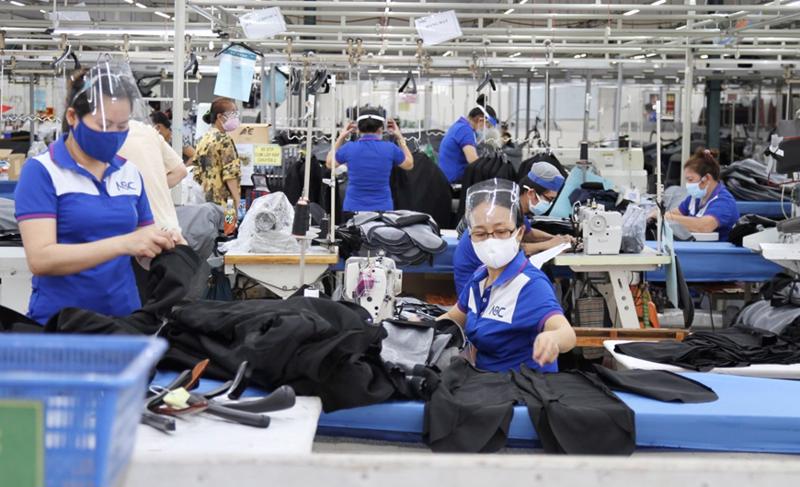Collective agreements contribute to fighting inequality, says ILO
(LĐXH)- Collective bargaining played a crucial role during the pandemic and can provide an effective means for employers and workers to tackle the new challenges that are shaking up the world of work.
Collective bargaining can advance equality and foster inclusion says a new ILO report, the first of a series of flagship reports on Social Dialogue. 

The higher the coverage of employees by collective agreements, the lower the wage differences are, says the report, which is based on a review of collective agreements and practices in 80 countries at different levels of economic development and the legal and regulatory frameworks in 125 countries.
Collective agreements – the process of voluntary negotiation between one or more employers (or their organizations) and one or more workers’ organizations – can effectively reduce wage inequality, whether in an enterprise, sector or industry.
Collective bargaining can also contribute to narrowing the gender pay gap. Over half (59 per cent) of the collective agreements reviewed by the ILO study reflect a joint commitment by employers or their organizations and workers organizations (particularly trade unions) to address gender inequality by ensuring equal pay for work of equal value, providing for parental and family leave and addressing gender-based violence at work.
According to the report, over one third of employees (35 per cent) in 98 countries have their wages, working time and other conditions of work set by autonomous collective negotiations between a trade union and an employer or employers’ organization. But there is a considerable variation across countries, ranging from over 75 per cent in many European countries and Uruguay to below 25 per cent in around half of the countries for which data are available.
Collective bargaining has played an important role in mitigating the impact of the COVID-19 crisis on employment and earnings, helping to cushion some of the effects on inequality while reinforcing the resilience of enterprises and labour markets by supporting the continuity of economic activity, explains the study.
Collective bargaining will be an essential tool to face the fundamental changes that are shaking up the world of work. In view of the rapid growth in diverse work arrangements – including temporary, part-time and on-call work, multi-party employment relationships, dependent self-employment and, most recently, platform work performed under different work and employment relationships – several countries have taken steps to ensure the effective recognition of the right to collective bargaining for all workers, said the ILO study./.
Hong Minh
Tags:
-
 Over 10,000 women and children in Ninh Thuận and Cà Mau access clean water and better livelihoods
21-02-2025 14:36 01
Over 10,000 women and children in Ninh Thuận and Cà Mau access clean water and better livelihoods
21-02-2025 14:36 01 -
 Promoting labor cooperation between Vietnam and the Province of Saskatchewan (Canada)
18-02-2025 15:18 18
Promoting labor cooperation between Vietnam and the Province of Saskatchewan (Canada)
18-02-2025 15:18 18 -
 Multidimensional poverty rate nationwide drops to 4.06% in 2024
12-02-2025 15:45 16
Multidimensional poverty rate nationwide drops to 4.06% in 2024
12-02-2025 15:45 16
-
 9 in 10 Vietnamese consumers say a healthier diet is important to support mental and physical health – Herbalife Asia Pacific survey
26-12-2024 13:52 47
9 in 10 Vietnamese consumers say a healthier diet is important to support mental and physical health – Herbalife Asia Pacific survey
26-12-2024 13:52 47 -
 International migrants are vital force in the global labour market
19-12-2024 14:25 00
International migrants are vital force in the global labour market
19-12-2024 14:25 00 -
 2024 Vietnam Labour Day in Japan held
11-12-2024 11:02 18
2024 Vietnam Labour Day in Japan held
11-12-2024 11:02 18
- Herbalife Vietnam won the Corporate Social Responsibility Recognition Award by AmCham for the seventh consecutive year
- Herbalife Vietnam Expands Casa Herbalife Program to 15 Locations Nationwide To Help Improve Daily Nutrition For People In Need
- Deputy Minister Le Van Thanh received the Director of the Global Better Work Program











